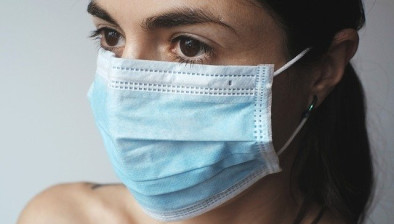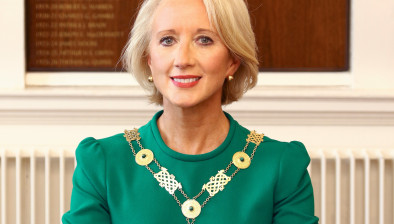High Court: Distillery had legitimate expectation that pandemic supply of sanitiser would be free from excise duty

The High Court has ruled that a gin distiller who produced hand sanitiser during the beginning of the Covid pandemic had a legitimate expectation that the product would be free from excise duty. The court held that there was an implied representation by the Revenue Commissioners that no excise duty would be applied arising from the course of dealing in March 2020.

About this case:
- Citation:[2022] IEHC 267
- Judgment:
- Court:High Court
- Judge:Ms Justice Siobhán Phelan
The Revenue denied that any verbal communication had ever been given to the distiller that the sanitiser would be free from excise duty and determined that written authorisation was necessary before production. However, the court noted that despite the urgency at the time, the Revenue had still not made a decision on whether excise duty should be applied.
Background
The applicant was an Irish gin distillery. During the onset of the pandemic in March 2020, the company was approached by Our Lady’s Hospital for Sick Children Crumlin to produce hand sanitiser. At the time, there was an acute shortage of the product as it was deemed necessary both in medical and public settings.
The applicant agreed to provide the sanitiser and contacted the Revenue to establish whether the sanitiser would be subject to excise duty. Ordinarily, alcohol products were subject to Alcohol Products Tax, although certain products were exempt. Exempted products included those used for medical purposes or where the alcohol was denatured.
A formal application was made on 20 March 2020 for authorisation to use 80,000 litres of ethanol using Form APT1 and for the alcohol to be exempt from APT pursuant to section 77 of the Finance Act 2003. Given the urgency of the situation, the company’s owner claimed to have contacted Revenue by telephone on 24 March 2020 and said that he was verbally assured that the hand sanitiser would not be subjected to APT. Accordingly, the applicant began to produce the sanitiser.
On 30 March 2020, the applicant received permission from the Department of Agriculture, Food and the Marine to place the sanitiser on the market. The applicant understood that this permission was the only remaining requirement before his sanitiser could be sold to the hospital.
Later, on 1 April 2020, the applicant put in a further application using Form APT1 with Revenue for a significantly increased production of sanitiser, using approximately 800,000 litres of ethanol. This application was for 160 times more alcohol than the applicant’s existing authority of 5,000 litres. The Revenue raised certain queries with the applicant about this new authorisation but the applicant did not respond as the demand for sanitiser had dissipated.
By June 2020, the applicant was no longer producing sanitiser, although the applicant was still advertising hand sanitiser. Additionally, certain electronic notifications had been made to Revenue about the importation of ethanol. At this stage, Revenue contacted the applicant to cease production.
The Revenue took the view that the formal applications which had previously been made in March and April 2020 by the applicant had not been determined and therefore the applicant did not have authorisation to produce the sanitiser free from APT.
By August 2020, a decision had still not been made by Revenue and the applicant issued judicial review proceedings. The applicant relied on the verbal communication with Revenue that it would not be subject to excise duty and on the general knowledge within the industry as to the relaxed approach of Revenue at the time. Further, the applicant claimed to have a legitimate expectation that excise duty would not be applied based on the actions of Revenue.
The applicant submitted that it would have been “madness” for him to make the sanitiser without authorisation because the liability to excise duty would far outweigh the profits from sales. The applicant’s potential exposure to excise duty was approximately €2.1 million.
High Court
Delivering judgment in the case, Ms Justice Siobhán Phelan began by outlining the relevant legislative provisions relating to alcohol and excise duty. In particular, the court noted that section 77 of the 2003 Act did not require a written authorisation from Revenue for a valid APT exemption.
The first issue considered by the court was whether the verbal authorisation had actually been made by the Revenue. The court commented that there was a direct conflict on affidavit as to whether the verbal communication had been made and there was no cross-examination of the deponents. Accordingly, it was more difficult for the court to make a determination on the issue.
Ultimately, the court held that it was bound to accept the categorical assertion by Revenue that the authorisation had not been granted, having regard to the onus of proof on the applicant to prove the conversation. While the verbal authorisation may well have occurred, there was simply a lack of evidence that the conversation took place. Accordingly, the court had to determine that the applicant did not have authorisation when making the sanitiser.
Next, the court considered whether the applicant had a legitimate expectation that APT would not be applied to the production. The court outlined the test found in Glencar Exploration v. Mayo County Council [2002] 1 I.R. 84, where an express or implied representation must be made, conveyed to the person and of such character that it created a reasonable expectation that the public body would abide by it.
The court noted that the Revenue failed to deny that authorisation had been provided to other suppliers only on the condition of approval from the DAFM. It was held that the applicant’s understanding was therefore correct and, further, this appeared to be common knowledge within the industry.
Additionally, the court held that the applicant would not have imported ethanol if he had understood that he would be liable to excise duty. The court held that it was “very material” that the applicant had not been counselled by the Revenue to await formal authorisation or that there was any issue with his application, notwithstanding that the verbal authorisation was not upheld on the evidence.
The court was satisfied that the Revenue’s course of dealing created an implied representation that the alcohol would be relieved from excise. This was conveyed directly and indirectly to the applicant by the Revenue’s communications with the applicant and the general knowledge of the industry, the court held.
Finally, it was held that the applicant reasonably entertained the belief that the exemption authorisation had been provided by Revenue. In particular, the court had regard to the national health emergency which pertained at the time and the open statements by Revenue to be authorising the importation of ethanol to produce sanitiser. Accordingly, there was a legitimate expectation that the alcohol would be free from APT.
The court also criticised the Revenue for failing to determine the applicant’s applications which had been outstanding for two years. The court said: “If ever there were a situation where there was a need for prompt decision making by the Revenue, this would appear to have been such an occasion.” However, the determination of these applications were matters for the Revenue and the court refused to adjudicate on the merits of the applications.
Conclusion
The court held that the applicant had a legitimate expectation that the hand sanitiser would be exempt from APT arising from the Revenue’s conduct during the pandemic. This legitimate expectation had to be considered by Revenue when determining the APT applications under section 77 of the 2003 Act.
Arderin Distillery Limited v. The Revenue Commissioners [2022] IEHC 267











